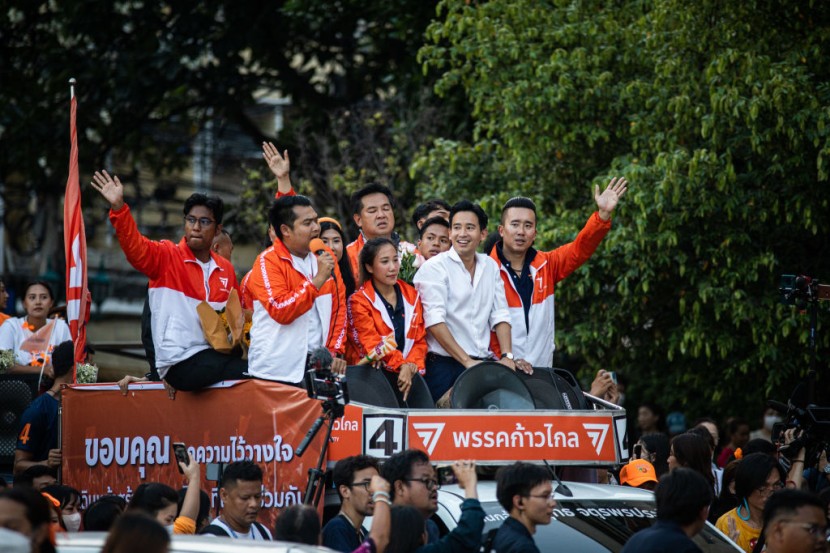
- Thailand opposition parties score a major victory in elections against military-backed incumbents
- The Move Forward Party (MFP) is expected to win 151 seats in the House
- On the other hand, the Pheu Thai party, which is linked to former Prime Minister Thaksin Shinawatra, is set to win 141 seats
Thailand voters supported democracy in the national elections, allowing opposition parties to achieve a major victory in what is seen as a defiance of military rule.
Progressives and several members of the country's pro-democracy opposition parties achieved overwhelming success this weekend. It surprised many political observers in the region, which indicates that the nation's people are demanding change from the current military-led regime.
Thailand's Opposition Parties Score Major Victory
Furthermore, the victory of opposition parties sends a significant message that favors a more representative government. Pita Limjaroenrat's progressive Move Forward Party (MFP) is set to win 151 seats in the House. On the other hand, the Pheu Thai party, which is aligned with former Prime Minister Thaksin Shinawatra, is expected to win 141 seats, as per Vox.
Put together; the two opposition parties will have control of at least 292 seats out of the 500 available in the House. In a statement, Council on Foreign Relations fellow Josh Kurlantzick said that the results would cause a major change in the country since the MFP is the first to directly challenge major Thai institutions, such as the monarchy and the military.
For a long time, the military has had a hold on Thailand's political environment, a grip that was further bolstered by military coups in 2006 and 2014. The coup in the latter year was one that Prime Minister Prayuth Chan-ocha led and resulted in a new Constitution that gave unprecedented power over the government to the military.
Another cause of concern was that one of the post-coup reforms that were implemented threatened the MFP's coalition. The country needed 376 members of parliament to elect a new prime minister, and the military was the one that appointed the 250-person Senate.
What Happens Next?
A visiting fellow at the ISEAS-Yusof Ishak Institute, Napon Jatusripitak, said the election could be considered a referendum on traditional power centers in Thai politics. He added that the country's people demanded change in the form of structural reform, according to the New York Times.
The opposition parties win the elections; the only question remains whether the military establishment will accept the results. The MFP used its campaign to target institutions and policies previously considered sacrosanct in Thai society.
These include mandatory military conscription and legislation that protect the country's king from criticism. With the Pheu Thai party in government, there may be a chance to place the former prime minister back into the center of the nation's politics.
Following the results, Pita said, while speaking at the party's headquarters in Bangkok, that the sentiment of the country's era has already changed. His party was able to ensure support from young voters who have been, for years, disillusioned by military rule, said BBC.
© 2025 HNGN, All rights reserved. Do not reproduce without permission.








